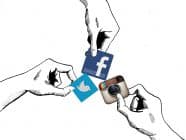 Most German news editors are of the opinion that the importance of Twitter is currently overrated.
Most German news editors are of the opinion that the importance of Twitter is currently overrated.
The “overrated” notion emerged as the result of a survey among editorial offices within the frame of the study “Twitter and Journalism: The Influence of the Social Web on the News” conducted by the Institute for Communications Sciences at the Westfälische Wilhelms University, Münster.
Christoph Neuberger, Hanna Jo vom Hofe and Christian Nuernbergk surveyed editors from 70 media outlets in Germany, among them daily regional and national newspapers, national broadcasters, weekly and Sunday newspapers as well as national magazines and professional “Internet only” offers.
More than two-thirds of the surveyed journalists (70%) believe the significance of Twitter is overrated at present. However attitudes about whether Twitter will gain importance for professional journalism were clearly divided. Almost half of the respondents agree that Twitter will increase in journalistic value (49%) while the other half do not.
Nevertheless, almost all of the surveyed newsrooms (92%) have Twitter accounts. Three of five newsrooms without Twitter accounts intend to register in the near future.
Nearly one-fifth (19%) of the surveyed newsrooms report sending more than 40 daily Twitter updates on average. Twenty-two percent tweet 11 to 20 times per day. Most of the surveyed newsrooms, however, send considerably less updates: 42% tweet zero to 10 times per day on average. Daily newspapers send fewer tweets than other news outlets.
Low advertising impact
Two-fifths (41%) of the surveyed newsrooms began using Twitter in the first half of 2009. Twenty-eight percent followed in the second half of the year, 16% in the second half of 2008, while four newsrooms started even earlier.
Though 97% of the respondents use Twitter to navigate traffic to their own websites, 93% indicate that less than 10% of the users arrive on their websites via Twitter. The advertising impact is therefore rather low. According to the study only the collaboration of several social networking pages has lead to significant rise in the number of clicks on the sites.
Research rules remain the same
Most of the newsrooms (94%) use Twitter for research. In most cases journalists search for public opinion trends on Twitter – 59% indicate that they search “frequently” for this reason. Furthermore, the journalists look to Twitter for feedback on their own reporting, for topics they could cover, and to observe Twitter as a more general phenomenon.
Yet there’s hardly any investigation in a narrower sense on Twitter, such as searching for eye witnesses or experts, or for facts and information in order to crosscheck existing information.
Nevertheless the existing rules in journalism are also applied while conducting research on Twitter. The two-source rule is important to almost all of the respondents (97%), who agree that research on Twitter should be complemented with other modes of research. Ninety-one percent are of the opinion that websites discovered with the aid of Twitter should be only used if the provider is known and is considered credible. Seventy-seven percent of respondents assert that the credibility of sources should be verified by contacting the author.
Interaction with users
Two-thirds of the surveyed newsrooms (66%) indicate they interact with users on Twitter. Fifty-eight percent of these newsrooms call actively on users to participate in discussions in order to influence the content. Users notify the journalists of surprising local events, such as power blackouts, fire fighting operations and transit disruptions.
In two instances users notified journalists of errors in their coverage via Twitter. In one case Twitter was used to ask for headline ideas.
Overall, nearly two-thirds of the respondents view Twitter as “rather unimportant” for their daily work in the newsrooms. Twitter seems to be more important to editors of weekly newspapers, magazines and broadcast than to their print colleagues. Around 60% of the first group feel Twitter is “rather important” for their editorial work; only 26% of the print journalists share this opinion.
The study, commissioned by the Landesanstalt für Medien Nordrhein-Westfalen (the regional office for media in North Rhine-Westphalia, lfM) can be downloaded here (in German).
Tags: Advertising, Christian Nuernbergk, Christoph Neuberger, German Journalists, German Newsrooms, Hanna Jo vom Hofe, Twitter, Twitter and Journalism: the Influence of the Social Web on the News













































